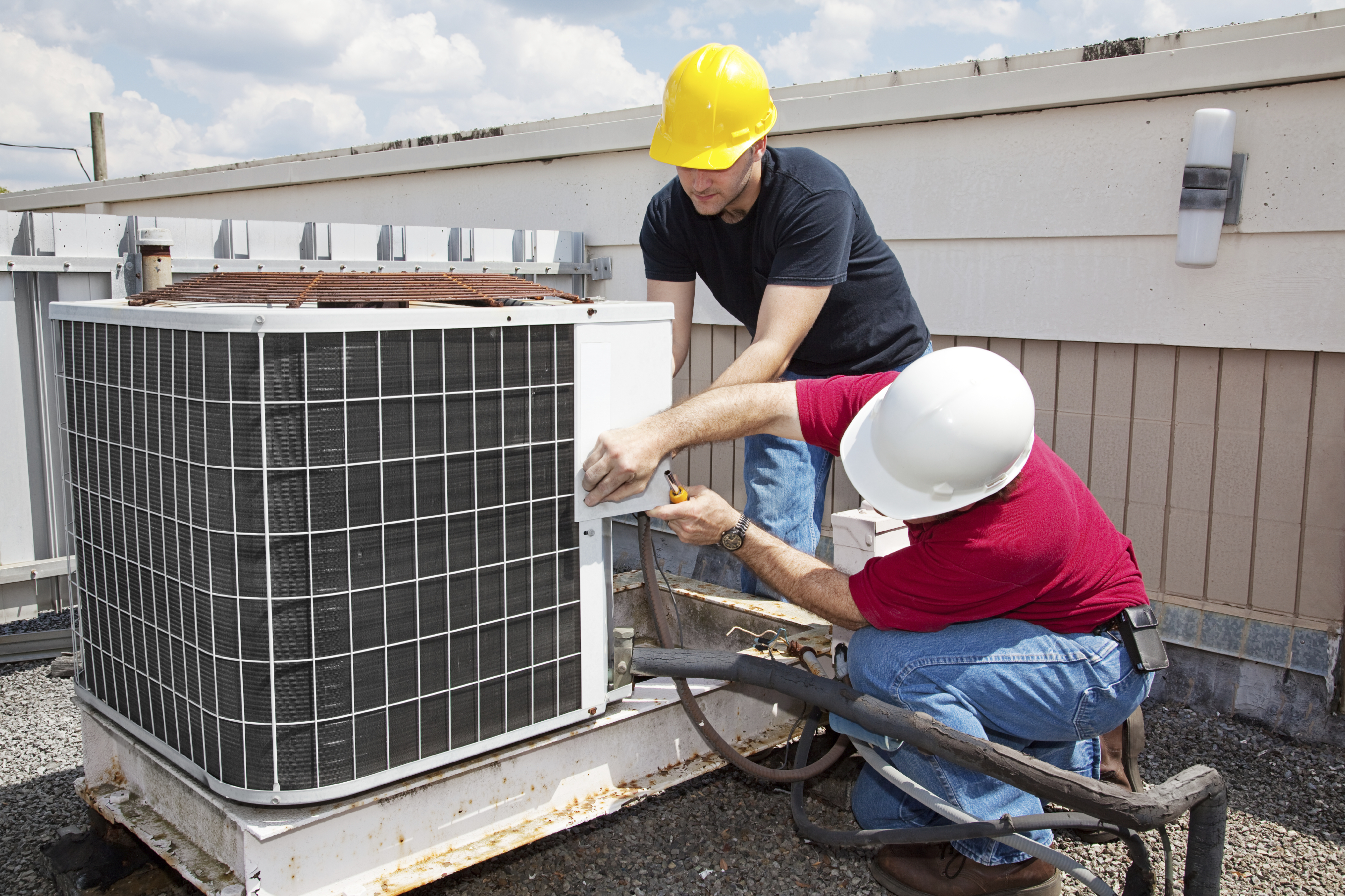The Effect of Environment Modification on Cooling Needs

Visualize a world where the sweltering warm of tomorrow meets your reliance on a/c today. As environment adjustment continues to change temperature level patterns worldwide, the impact on a/c requires becomes progressively crucial.
However what exactly does this mean for the future of cooling systems and the convenience they give? Remain tuned to explore the unraveling obstacles and prospective solutions in handling the junction of environment modification and a/c demands.
Trick Takeaways
- Increasing temperatures drive raised demand for energy-efficient air conditioning.
- Sustainability initiatives promote eco-friendly cooling remedies.
- Adapting facilities to climate changes is essential for efficient cooling.
- Ingenious innovations are essential for lasting and resistant air conditioning.
Climbing Temperature Levels and Air Conditioning Need
As temperature levels continue to rise globally, the need for air conditioning systems is raising considerably. With the requirement for temperature policy ending up being much more necessary, people are relying on a/c devices to maintain comfortable interior environments. This increase sought after is also promoting improvements in cooling effectiveness, triggering producers to develop even more energy-efficient and effective air conditioning options.
When it concerns temperature level policy, cooling systems play an important duty in ensuring that indoor rooms stay trendy and comfortable, particularly during hot weather. The raising temperature levels because of climate modification have made these systems vital for several homes and companies alike. As a customer, you might locate yourself looking for a/c devices that offer exceptional cooling down efficiency to deal with the heat successfully.
In reaction to the escalating demand for a/c systems, suppliers are focusing on improving cooling efficiency to meet the requirements of consumers while likewise resolving environmental problems. By investing in energy-efficient innovations, these systems can give the called for air conditioning without compromising on performance, providing a balance between comfort and sustainability.

Power Intake Difficulties
With the rising need for air conditioning systems driven by increasing temperatures, the obstacle of power intake emerges as a considerable problem in the domain name of cooling services. As cooling down need fads continue to rise due to climate modification effects, there's a pressing requirement for power effectiveness advancements to address the rising energy intake patterns related to air conditioning units.
To tackle this problem, sustainability initiatives play a pivotal duty in promoting eco-friendly methods and minimizing the total power consumption of cooling down systems. By integrating energy-efficient modern technologies and carrying out lasting practices, such as making use of smart thermostats and maximizing structure layouts for all-natural cooling, people and companies can contribute to reducing the impact of air conditioning on power usage.
Welcoming these developments not only assists lower energy costs however likewise help in minimizing the carbon impact associated with cooling services, cultivating a much more sustainable approach to satisfying the boosting need for a/c in a warming world.
Impact on Air Conditioning Framework
The relevance of maintaining and upgrading cooling infrastructure in feedback to climate change can't be overstated. As temperature levels increase and severe warm events become a lot more frequent, the need for cooling systems is enhancing. Here are some bottom lines to remember:
- Cooling System Upgrades: With climate adaptation in mind, buying energy-efficient cooling systems and modern technologies is necessary to meet the expanding cooling needs. Updating to newer, extra efficient systems can help reduce power consumption and reduced greenhouse gas discharges.
- Framework Resilience: Structure resistant cooling infrastructure that can hold up against the influences of environment modification, such as heatwaves and severe weather condition events, is essential. This consists of making certain appropriate insulation, air flow, and maintenance of cooling systems to boost their durability and performance. ac not cooling
- Environment Adaptation: Adjusting cooling down facilities to transforming environment conditions is needed to meet the increasing air conditioning needs while decreasing environmental influences. Strategic preparation and financial investment in lasting air conditioning services can help mitigate the impacts of environment modification on cooling down systems.
Health and Wellness Results

Maintaining and upgrading cooling infrastructure in action to climate modification not only impacts power performance but additionally straight affects wellness and well-being.
When temperature levels rise because of environment modification, the demand for a/c increases, bring about long term exposure to indoor atmospheres. This prolonged exposure can have considerable results on mental health and wellness, as research studies have actually shown a correlation in between extreme warmth and raised levels of stress, stress and anxiety, and even clinical depression.
Furthermore, as a/c systems work to cool indoor areas, they play a vital duty in preserving great interior air high quality. Poor indoor air quality can bring about breathing issues, allergies, and other health problems.
Adjustment Approaches for Air Conditioner Demands
Thinking about the rising demand for air conditioning due to climate modification, implementing adjustment strategies is essential to ensure efficient cooling remedies. To resolve the boosting need for cooling down while reducing power intake and costs, below are some essential approaches to contemplate:
- Air conditioning Effectiveness: Enhancing the performance of your air conditioning system can greatly decrease power use. Normal maintenance, correct insulation, and investing in energy-efficient designs can all contribute to much better cooling effectiveness.
- Demand Response: Taking part in demand response programs can aid handle peak electricity demand. By adjusting your AC usage during high-demand durations or making use of clever thermostats to optimize cooling based on power rates, you can add to an extra lasting power grid.
- Smart Innovation Assimilation: Including smart modern technologies like sensing units, automation, and push-button controls can help you regulate cooling more effectively. These tools enable you to monitor and readjust your AC system for top performance and energy cost savings.
Future Overview and Solutions
You can expect an increased emphasis on effective air conditioning modern technologies, such as clever thermostats and variable refrigerant flow systems, to combat the effects of climate adjustment on cooling.
Accepting renewable energy choices like solar power for cooling systems will come to be more essential as the requirement for sustainable solutions grows.
Adapting to the altering climate by applying innovative air conditioning techniques will certainly be important in making certain future comfort and environmental sustainability.
Effective Air Conditioning Technologies
As technology breakthroughs quickly, brand-new reliable cooling modern technologies are becoming encouraging services to combat the challenges presented by climate modification on cooling systems. One essential solution is the combination of smart thermostats, which maximize cooling based upon occupancy and usage patterns.
In addition, environment-friendly buildings that focus on energy efficiency and lasting cooling practices are gaining popularity to decrease ecological influence. An additional ingenious innovation consists of variable cooling agent flow systems, which change the circulation of refrigerant to fulfill specific cooling down needs efficiently.
These developments not only improve cooling down efficiency but also add to minimizing power usage and greenhouse gas emissions when faced with environment modification obstacles.
Renewable Resource Options

To attend to the expanding influence of environment change on cooling systems, checking out renewable resource choices is essential for ensuring sustainable cooling remedies in the future.
By using solar energy, cooling devices can operate efficiently while lowering their carbon impact. Photovoltaic panel can be mounted on roofs to capture sunlight and convert it right into power, powering the cooling systems.
Furthermore, incorporating geothermal systems can supply an eco-friendly and consistent source of energy for cooling. These systems use the stable underground temperature level to cool air in summer and cozy it in winter months, offering an environment-friendly choice to traditional air conditioning techniques.
Accepting solar energy and geothermal systems can pave the way for a greener and more sustainable future in a/c innovation.
Adjustment to Transforming Climate
Incorporating cutting-edge innovations and flexible methods is crucial for alleviating the results of climate change on air conditioning systems. To enhance environment resiliency and improve temperature level regulation, think about the following:
- Apply smart thermostats to optimize energy use and keep interior convenience degrees efficiently.
- Purchase building insulation and energy-efficient windows to minimize warmth transfer and reduce the work on a/c.
- Make use of natural ventilation strategies, such as cross ventilation and night removing, to cool interior spaces without only depending on mechanical air conditioning systems.
Regularly Asked Questions
Exactly How Does Environment Adjustment Specifically Affect the Performance of Cooling Systems?
When climate modification alters temperature levels and humidity levels, a/c efficiency is influenced. Energy consumption enhances as systems function harder to keep desired indoor problems. This strain can lead to lowered performance and prospective system failings.
Routine system upkeep is essential to ensure maximum efficiency despite altering climate problems. By staying proactive with upkeep, you can aid reduce some of the difficulties postured by climate change on cooling systems.
Are There Any Prospective Health Threats Related To Increased Cooling Use Due to Rising Temperatures?
When you crank up the a/c to defeat the warmth, you may be risking your wellness. Potential health threats from enhanced a/c use include respiratory system problems from inadequate air top quality and increased direct exposure to irritants.
Plus, the a lot more you rely on air conditioning, the better the energy consumption, bring about greater greenhouse gas exhausts and aggravating environment change.
What Are Some Innovative Technologies Being Created to Resolve the Raised Demand for Air Conditioning in a Changing Environment?
When it concerns ingenious technologies for cooling, energy-efficient alternatives are excellent. Lasting air conditioning solutions have acquired grip due to their environment-friendly nature. These developments intend to improve comfort while minimizing environmental effect.
Energy-efficient air conditioning systems are being designed and implemented to deal with the increasing need for a/c in a transforming environment. Accepting these sophisticated innovations can help you remain great without compromising the earth's well-being.
Just How Do Urban Warm Islands Worsen the Requirement for A/c in Largely Inhabited Areas?
Urban heat islands, brought on by high population density and urbanization, increase the need for cooling in cities. Urban planning can combat this by including environment-friendly areas and reflective surfaces to mitigate warm.
However, increased air conditioning usage in these locations causes higher energy usage and contributes to further ecological obstacles. Balancing urban development with sustainable techniques is very important to address the exacerbation of cooling requires in densely booming regions.
What Duty Do Federal Government Plans and Regulations Play in Mitigating the Effect of Environment Change on Cooling Needs?
Government laws play a crucial role in resolving environment change impacts. By setting requirements for power performance, they encourage the fostering of green air conditioning technologies.
Urban planning strategies guided by these laws can enhance climate modification adaptation. In addition, laws concentrated on public wellness issues can prioritize cooling down demands in prone areas.
Verdict
As temperature levels continue to rise as a result of climate adjustment, the need for a/c will just enhance. This will bring about greater energy intake, strain on cooling infrastructure, and possible health and wellness threats.
It is very important to apply adaptation strategies and sustainable options to minimize these effects. By taking positive actions currently, we can guarantee a much more comfortable and healthier future for all.
